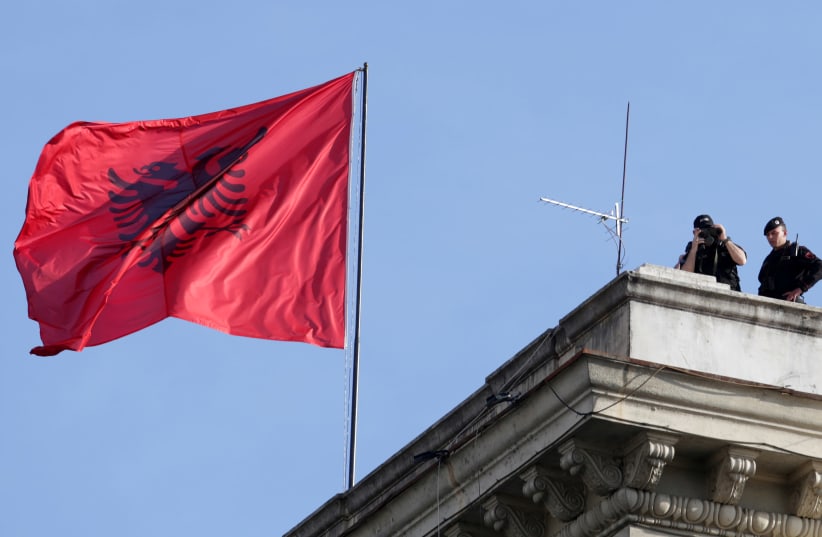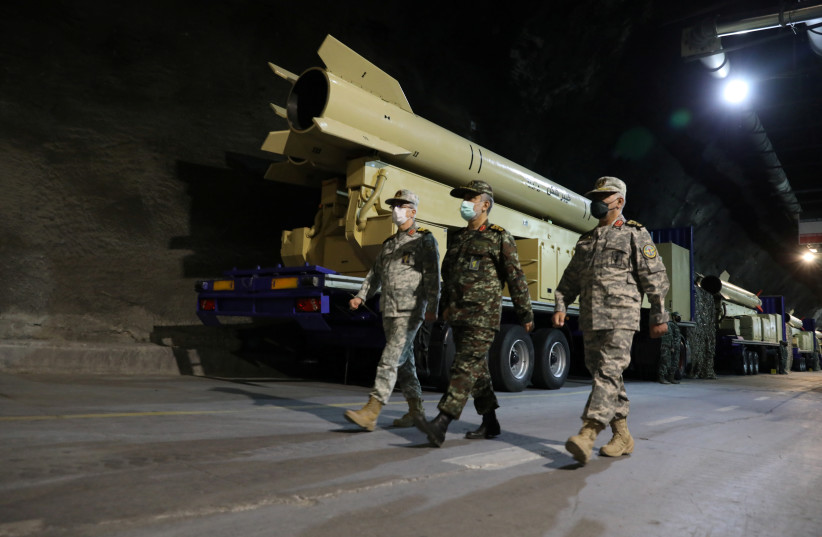Iran has for years carried out terrorist attacks around the world, targeted dissidents for kidnapping and assassination and attacked ships in international waters with impunity.
This impunity appears to have ended this week when Albania, outraged over a cyberattack, severed diplomatic ties with the Islamic Republic and expelled its embassy staff, according to reports.
Albania said it has “incontrovertible evidence” that Iran “hired four groups to mount the attack on Albania” on 15 July.
Iran’s pro-regime media has slammed Albania’s decision as a “baseless... anti-Iranian action of the Albanian government” and blames “third parties” for the incident. As is usual for Iran and its pro-Islamic Revolutionary Guard Corps media, Iran said that “Zionists” were behind the controversy.
Iran has used a variety of methods to carry out attacks like the one in Albania for many years.
In 2018, Iran attempted to target an opposition rally in France. A Belgian court convicted an Iranian diplomat of the plot and sentenced him to 20 years.
In 2021, the US sanctioned Iranians over an attempt to kidnap US-based journalist Masih Alinejad. Iran might have inspired another attempted attack on the same journalist this July.
Iran kidnapped activist journalist Ruhollah Zam in Iraq in 2019 and executed him by hanging in 2020. Iran is also alleged to have kidnapped a dissident in 2020 in Dubai. In 2020, an Iranian network was also alleged to have monitored and spied on dissidents in Canada and the United Kingdom.
In February 2021, the Dutch accused Iran’s regime of assassinating two Iranians in the Netherlands where a server was used to spy on dissidents, reports say.
In 2018, a report in The New York Times said that Iran had tried to kill an Arab dissident leader of The Arab Struggle Movement for the Liberation of Ahwaz, a separatist insurgent group operating out of Denmark.
The same year, Austria asked Iran to lift immunity for a diplomat detained over the France plot. Iran has also carried out plots in Turkey and Germany and Cyprus in recent years.
Iranian plots go back decades
In 2012, Reuters reported, “Reports prepared this week by intelligence analysts for the New York Police Department say three plots were foiled in January, three in February and another three since late June. Iran has repeatedly denied supporting militant attacks abroad.” These included plots in India, Georgia, Azerbaijan, Kenya and Cyprus.
“Each plot was attributed to Iran or its Lebanese Hezbollah militant allies, said the reports, which were produced following the bombing in Burgas, Bulgaria, of a bus carrying Israeli tourists.”
The overall picture is that Iran has since the 1980s felt it could carry out assassinations, espionage and other violations of international law anywhere in the world without suffering any consequences.
It operates even in states with which it has good relations. There seem to be no red lines.
Iran’s lawless behavior has threatened shipping as well. In May 2019, Iran mined four ships off the coast of the United Arab Emirates in the Gulf of Oman. A month later, it attacked two more ships. In July 2021, Tehran used a drone to attack a ship, killing a British and a Romanian crew member.
Iran has also carried out attacks in Iraq and used proxy groups in Iraq and Yemen to target the Gulf states.
In 2019, Iran attacked Saudi Arabia with drones and cruise missiles. It killed dissidents with missiles in Koya, Iraq, in 2018, and targeted Erbil twice this year.
Iran’s cyberattacks are not new and have intensified over several years as the IRGC has become increasingly involved. The group has targeted Israel and other countries and dissidents.
Albania’s decision to stand up to Tehran shows that countries are beginning to recognize the gravity of Iran’s attacks. Albania won support from the US, which has worked alongside the small southeast Balkan country to confront the cyber threat, identifying Iran as being behind the July 15 cyberattack.
The question now is whether this recent incident in Albania will encourage more countries to stand up to Tehran.

